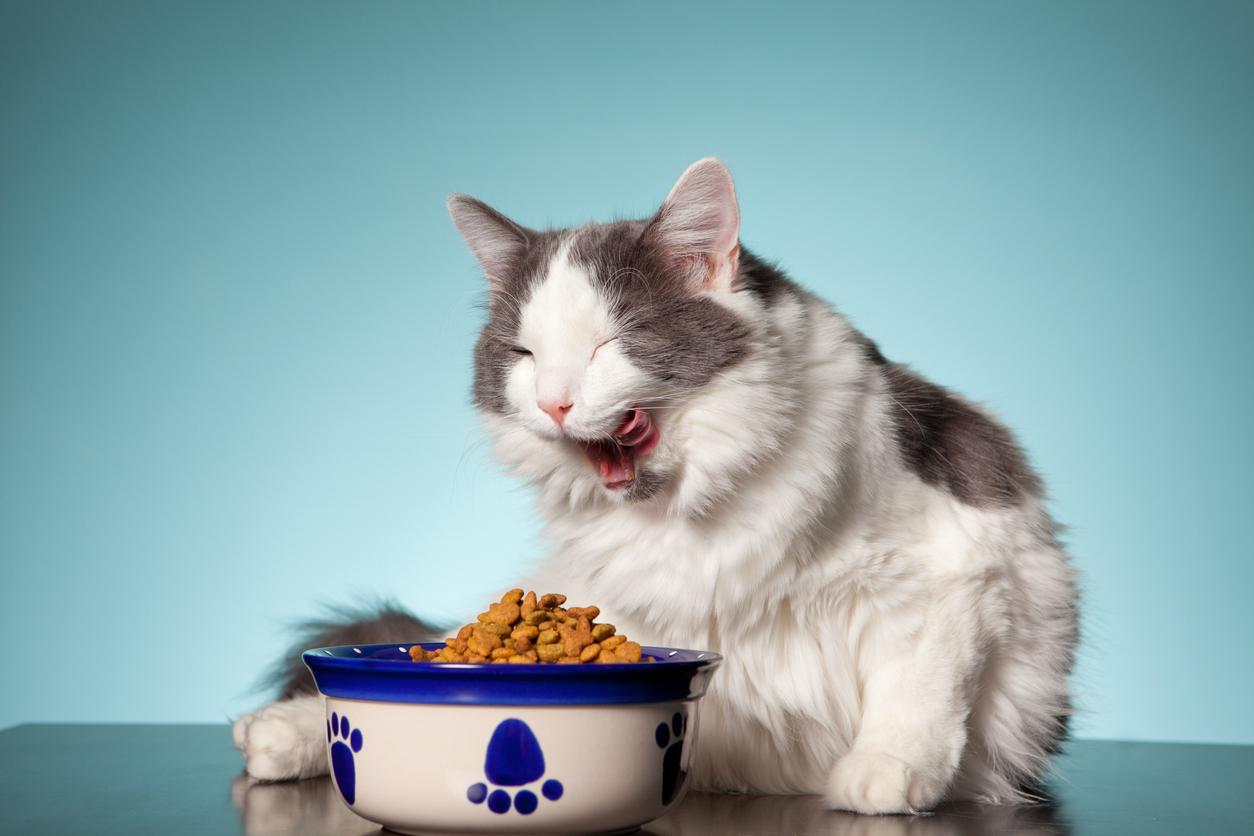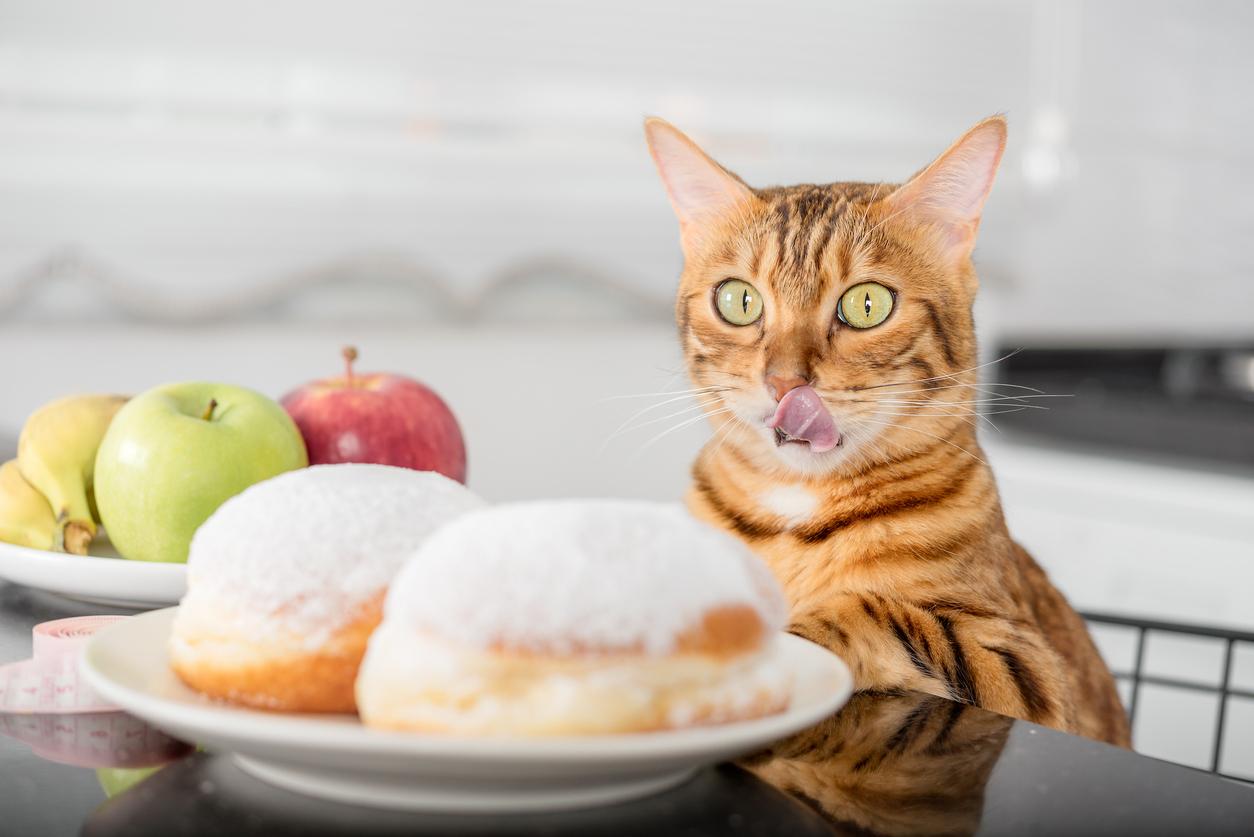You Can Handle Spicy, but Can Your Cat? Facts and Fiction About Cat Taste Buds
Cats have several thousand fewer taste buds than humans.
Published April 24 2024, 1:35 p.m. ET

You may be proud of your ability to withstand the heat from common pepperoncini to lava-like spicy chips, but can your cat tell the difference? If you and your cat were the next guests on a show like Hot Ones, could either of you make it through the spicy challenge?
We did the research so you can know how to responsibly share a bite with your cat without burning your respective tongues. Keep reading to learn more about what level of spiciness a cat can detect, plus, what other flavors cats can recognize with their unique palates.

Can cats taste spicy?
According to Catster, cats can taste spicy. Because they possess the "TRPV1" receptor, they can sense the spiciness and heat of a given food, and they'll let you know they didn't appreciate the spicy taste test by licking their nose, moving their tail horizontally, or grooming obsessively.
Furthermore, per Catster, spicy foods are generally considered bad for cats. Because spicy foods may also be seasoned with many spices that are toxic to cats, the range of reactions may encompass vomiting, diarrhea, stress, and, in some cases, death.
Remember that spicy foods may also trigger stressful reactions in cats due to the pungent aroma. According to Purina, a cat's outstanding sense of smell is thought to compensate for its comparatively weaker sense of taste.
According to Purina, cats employ "dual scent mechanisms," which encompass both the nose's typical sense of smell and the vomeronasal organ in their mouths. A spicy smell may offend your cat at best or harm them at worst.

Can cats taste sweet?
No, cats cannot detect the sweetness of foods. According to The Spruce Pets, cats have fewer than 500 taste buds compared to about 9,000 for humans, and while they share some similarities with the human senses of taste, they lack the receptor that signals the sense of sweetness to their brains.
As elaborated by Scientific American, cats do not have the requisite 247 pairs of the amino acids that form the DNA of the gene necessary to sense sweetness. All members of the cat family are the same way. Evolutionarily speaking, Scientific American explains, sweetness signals a carbohydrate-rich food, which is inessential to a cat's diet.
You may have observed experiences, like me, seemingly to the contrary. If your cat has shown a propensity towards begging for the sweet plant-based treats you enjoy, researchers have a theory.
"Maybe some cats can use their [Tas1r3 receptor] to taste high concentrations of sugar. It's a very rare thing but we don't know yet," says biochemist Joe Brand, who studied the genes responsible for sweetness receptors.
Even if your kitty could theoretically enjoy sweet treats, it is important to remember that a balanced diet is critical to any companion animal's health, especially cats with diabetes, obesity, or other medical conditions.
Always consult a veterinarian before adding new treats to your cat's diet.